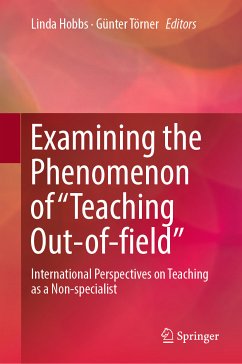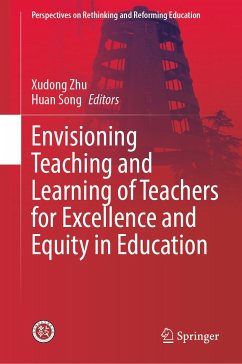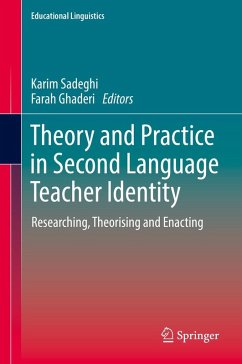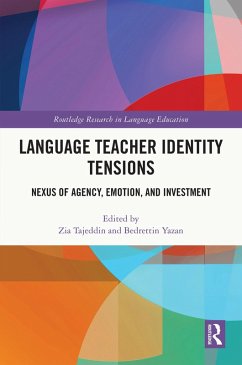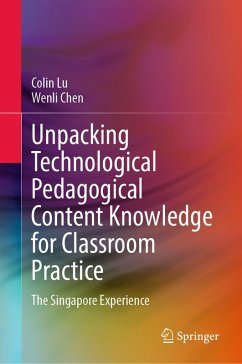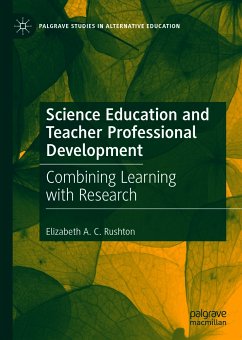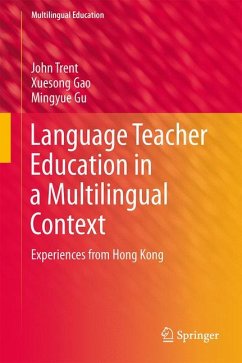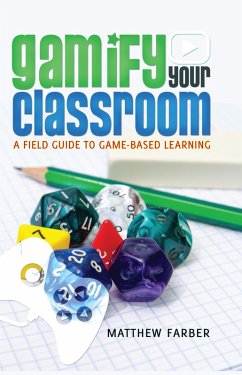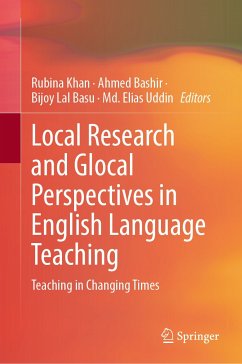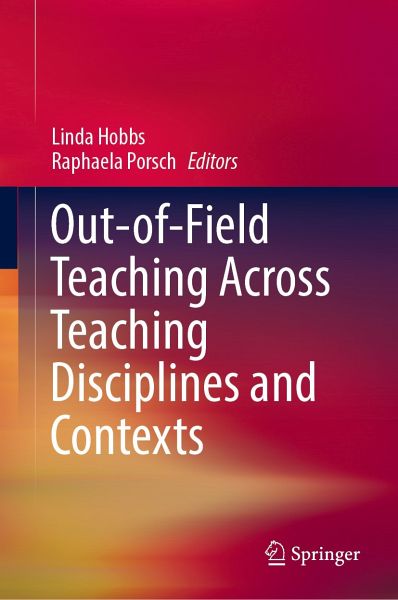
Out-of-Field Teaching Across Teaching Disciplines and Contexts (eBook, PDF)

PAYBACK Punkte
48 °P sammeln!
This edited book is a compilation of research by the members of the Out-of-Field Teaching Across Specialisations (OOF-TAS) Collective, and is the second book by the Collective. It extends from the work begun in the 2019 book, Examining the Phenomenon of "Teaching Out-of-Field" by showcasing the broad range of research agendas and findings relating to this phenomenon internationally. This book provides research and commentary relating to the out-of-field teaching phenomenon in primary, secondary and tertiary education, and across different subjects. It provides snapshots of the effects, causes...
This edited book is a compilation of research by the members of the Out-of-Field Teaching Across Specialisations (OOF-TAS) Collective, and is the second book by the Collective. It extends from the work begun in the 2019 book, Examining the Phenomenon of "Teaching Out-of-Field" by showcasing the broad range of research agendas and findings relating to this phenomenon internationally.
This book provides research and commentary relating to the out-of-field teaching phenomenon in primary, secondary and tertiary education, and across different subjects. It provides snapshots of the effects, causes, measurement, and other characteristics of out-of-field teaching in and across contexts, including states and countries, school types and school levels, subjects and specializations. The different chapters provide commentary at different units of analysis, and focus on: the effects of out-of-field teaching for teachers and their students; the schoolcontexts/cultures that do or do not support them; the leadership practices that assign the teachers to out-of-field subjects; and the systems that create/perpetuate the need for out-of-field teaching assignments.
Chapter 15 is available open access under a Creative Commons Attribution 4.0 International License via link.springer.com.
Dieser Download kann aus rechtlichen Gründen nur mit Rechnungsadresse in A, B, BG, CY, CZ, D, DK, EW, E, FIN, F, GR, HR, H, IRL, I, LT, L, LR, M, NL, PL, P, R, S, SLO, SK ausgeliefert werden.
Alle Preise in Euro und inkl. der gesetzl. MwSt. | Innerhalb Deutschlands liefern wir preisgebundene Bücher versandkostenfrei. Weitere Informationen: bitte hier klicken
Support
Bitte wähle dein Anliegen aus:
Rechnungen
Bestellstatus
Retourenschein
Storno



